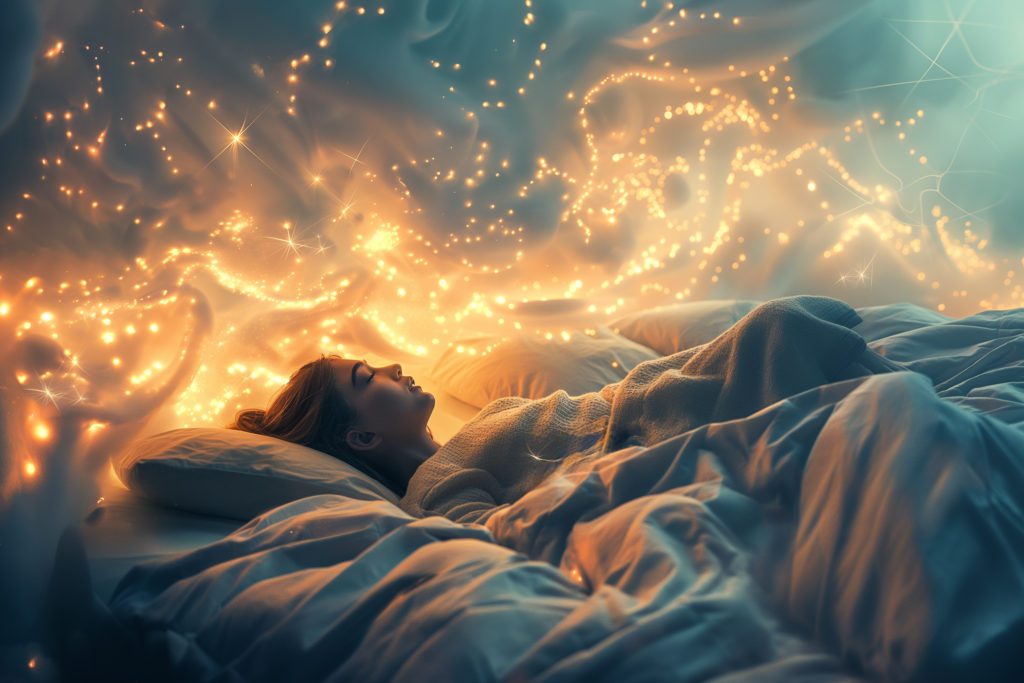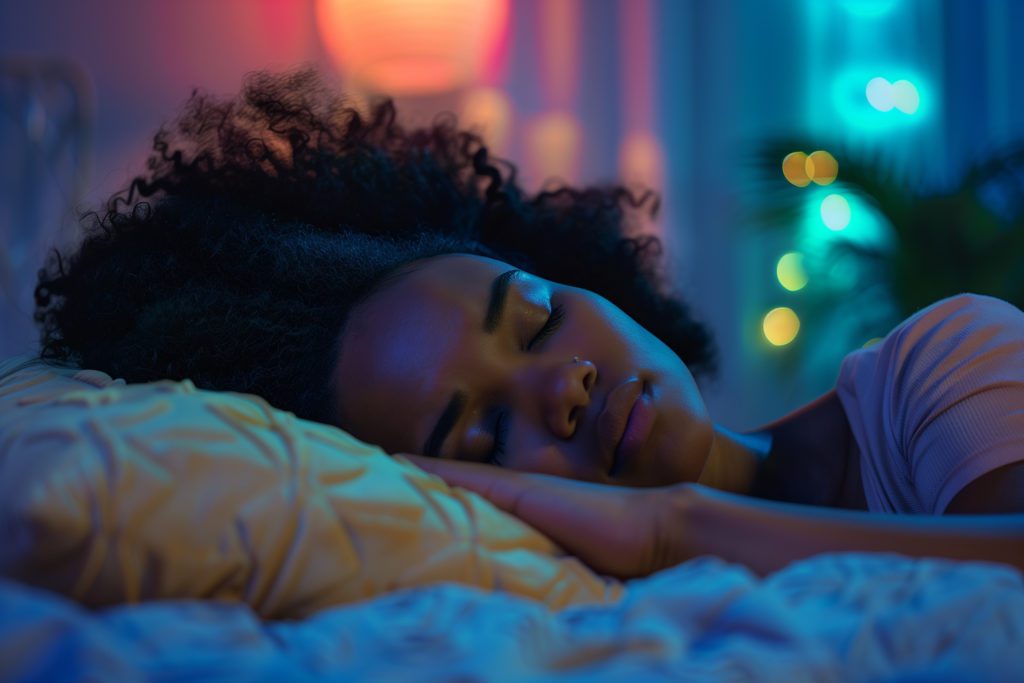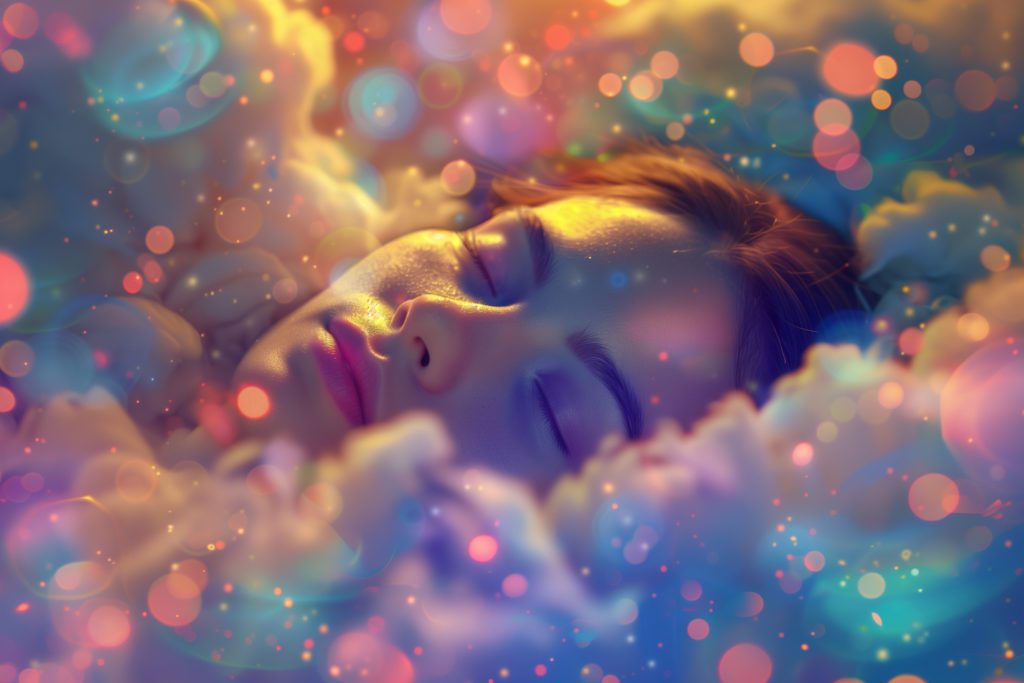
What Is Oneirology? Learn About the Science of Studying Dreams
Learn about how oneirology can help us understand what happens to our brains when we dream.

Have you ever been curious about what your dreams mean? You're in the company of thousands of researchers around the globe specializing in a branch of study called oneirology. Oneirology is the scientific approach to understanding dreams in relation to brain function. Far from being the work of mystics and spiritualists who assign supernatural meanings to dreams, oneirologists are interested in researching how the dream state is influenced by a person's emotions, memories, and behavioral patterns. Let's talk about the science of understanding your dreams.
Why Do Humans Dream?
The truth is that science hasn't yet provided a full answer to why humans dream. However, there are some pretty strong theories regarding why we dream, where dreams come from, and what our dreams might be telling us about our overall state of well-being. What's the prevailing theory?
Researchers believe that dreams are useful for helping our brains to consolidate and analyze memories. In addition to helping to imprint skills and habits into the psyche, they can also serve as rehearsals for various challenges and situations we may find ourselves in during our waking lives!
When Do Dreams Happen?
Studies have shown that brain waves buzz to life during a period of rest called REM (rapid eye movement) sleep. In fact, brain waves are nearly as active during REM cycles as they are when a person is fully awake and active. This is why it's believed that most of our dreaming takes place during REM sleep. In recent years, there has been a growing consensus that dreaming likely also occurs throughout the night during non-REM stages of sleep.
What Happens to Our Brains When We Dream?
What is so remarkable about dreaming is the way that dream life can mirror real life. In fact, some people experience dreams so vivid that they have a hard time differentiating between being awake and being asleep. We may encounter people, places, scenarios, feelings, and emotions that are completely familiar to us. However, dream consciousness has unique characteristics that differ strongly from awake consciousness. Here's a look:
- Reduced Voluntary Control and Volition - People are often surprised by their dream experiences because they did not consciously will the scenarios they experienced. A prominent feature of dream consciousness is a reduction in voluntary control of action and thought. Some researchers believe that this is owed to the deactivation of the right inferior parietal cortex during REM sleep.
- Reduced Self-Awareness and Altered Reflective Thought - While dreaming, we lose contextual awareness of our location and actions. We do not perceive that we are asleep in bed! At the same time, dreamers accept "impossible" events that defy physics, history, and other realities of our existence while awake. It's believed that this reduced self-monitoring during dreaming is tied to the deactivation of the posterior cingulate cortex, inferior parietal cortex, orbitofrontal cortex, and dorsolateral prefrontal cortex.
- Emotionality: REM sleep's association with activation of the amygdala, anterior cingulate cortex, insula, and other limbic and paralimbic structures could be behind why fear, anxiety, and other intense emotions that are prevalent in some bad dreams.
- Altered Mnemonic Processes: Researchers believe that the answer to why dreams often vanish from memory within seconds of waking is that the hypoactivity of the prefrontal cortex that is a part of mnemonic processes results in dream amnesia. Others hypothesize that dream amnesia stems from a state change involving the inactivity of monoaminergic systems and deactivation of the dorsolateral prefrontal cortex.
Science may even have an explanation for why dreams tend to be so strange and quirky. Blame it on your brain's neurotransmitters. Neurotransmitters are chemical messengers that transmit signals throughout the nervous system. During REM sleep, specific neurotransmitters are either enhanced or suppressed compared to our awake state. For example, it's believed that dopamine surges that increase during sleep states are responsible for why dreams often feel surreal.
The upticks in histamine, serotonin, and norepinephrine that occur during sleep may be responsible for why we are completely unaware of our bodily state or physical surroundings during sleep. There's even a theory that a portion of the brain called the thalamus that allows sensory input to enter deactivates during dreaming.
What may be one of the most important pieces of the puzzle regarding the function of dreams is that levels of a brain chemical called norepinephrine decrease significantly during REM sleep. Norepinephrine is associated with stress. By having an opportunity to process emotional and stressful experiences that have happened during the day in what researchers call a neuro-chemically safe environment, dreamers can wake up with heightened emotional strength and resiliency.
Dreaming Is Good for You
Dreaming may actually be good for your mental health! When researchers studied the effects of dream-phase sleep, they found that people who spent more time in REM sleep experienced lower fear-related brain activity when given mild electric shocks the following day. What does this mean? Researchers believe that these findings show that getting enough REM sleep prior to stressful or fearful experiences reduce a person's risk for developing post-traumatic stress disorder (PTSD) by protecting against excessive activity in fear-related neural circuitry.
In research involving MRI scans, participants who viewed emotional images before getting a full night of restful sleep were less likely to have strong emotional reactions the following day compared to participants who did not get high-quality sleep.
Unfortunately, people with poor sleep habits may be missing out on these protective benefits associated with getting good sleep. With longer periods of REM sleep only happening during the final hours of sleep, someone who does not get a full seven to eight hours of sleep per night may never enter deep REM sleep.
Final Thoughts on the Science of Dreaming
While dream interpretations can be fun, the truth is that we don't have to understand our dreams to understand that getting sufficient amounts of REM sleep nightly is essential for mental and emotional health. Pillow helps you track sleep patterns on your Apple Watch, iPhone, or iPad.
FAQ
How does oneirology differ from dream interpretation?
Oneirology is the scientific study of dreams using neuroscience and psychology, focusing on how and why we dream. Dream interpretation, on the other hand, aims to find symbolic meanings in dreams and is often based on personal or cultural beliefs.
Can studying dreams help in understanding mental health disorders?
Yes, analyzing dream patterns can provide insights into mental health. For example, frequent nightmares may be linked to PTSD, while vivid or disturbing dreams might signal anxiety or depression. This information can support diagnosis and treatment strategies.
Are there specific techniques used to study dreams scientifically?
Researchers use tools like EEG and polysomnography to monitor brain waves and sleep stages. They also gather and analyze dream reports to identify recurring themes, compare them across individuals, and relate them to psychological or neurological conditions.
Do external factors influence the content of our dreams?
Absolutely. Stress, medications, sounds, or even what you eat before bed can affect your dreams. For instance, antidepressants may lead to vivid dreams, while stressful events can increase the likelihood of nightmares or dreams with emotional intensity.
Is it possible to control or influence one's dreams?
Yes, through lucid dreaming, people can become aware they are dreaming and sometimes control the storyline. Techniques like keeping a dream journal, performing reality checks, and using affirmations before sleep can increase the chances of having lucid dreams.
Are there any evolutionary theories explaining why we dream?
Some scientists believe dreams may have evolved to simulate threats, allowing us to rehearse survival scenarios safely. This "threat simulation theory" suggests dreaming could have helped early humans develop better responses to danger in the real world.
Can dreams be used to enhance creativity or problem-solving skills?
Yes, many people report finding creative inspiration in dreams. The brain’s relaxed, uninhibited state during sleep allows unusual connections to form, which can lead to fresh ideas or solutions. Some artists and inventors credit dreams for their breakthroughs.

Written by
Emily Mendez
Emily Mendez is a former therapist and mental health author. She is one of the leading voices in mental health. Emily's writing has appeared in eCounseling, SonderMind, and more. Emily is frequently interviewed by Healthline, Fatherly, INSIDER, Family Circle, and other national media for her advice and expert opinion on the latest mental health topics.
Download Pillow
Get help
Press & News
Legal
Connect
X (Twitter)
Company
Copyright © Neybox Digital Ltd.



